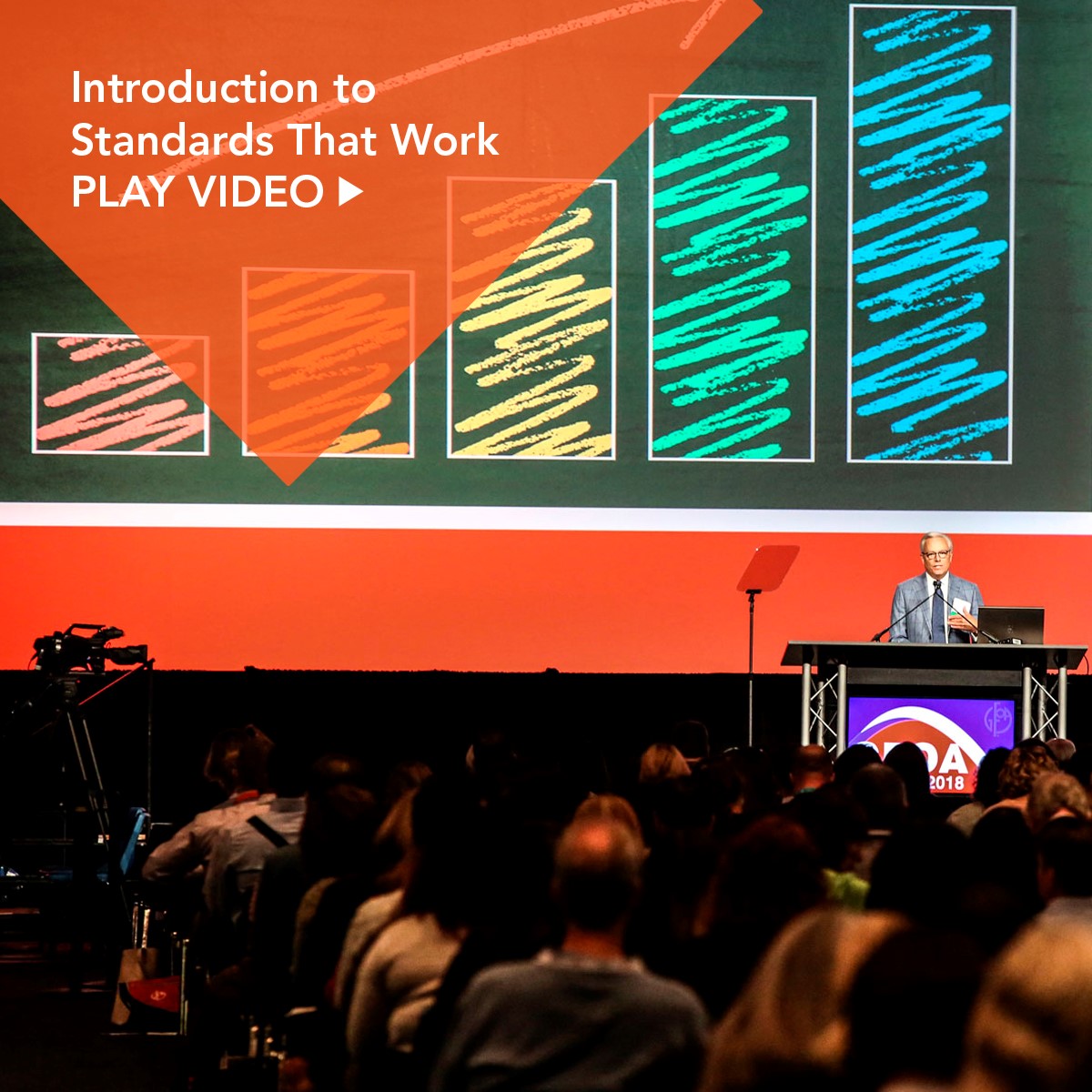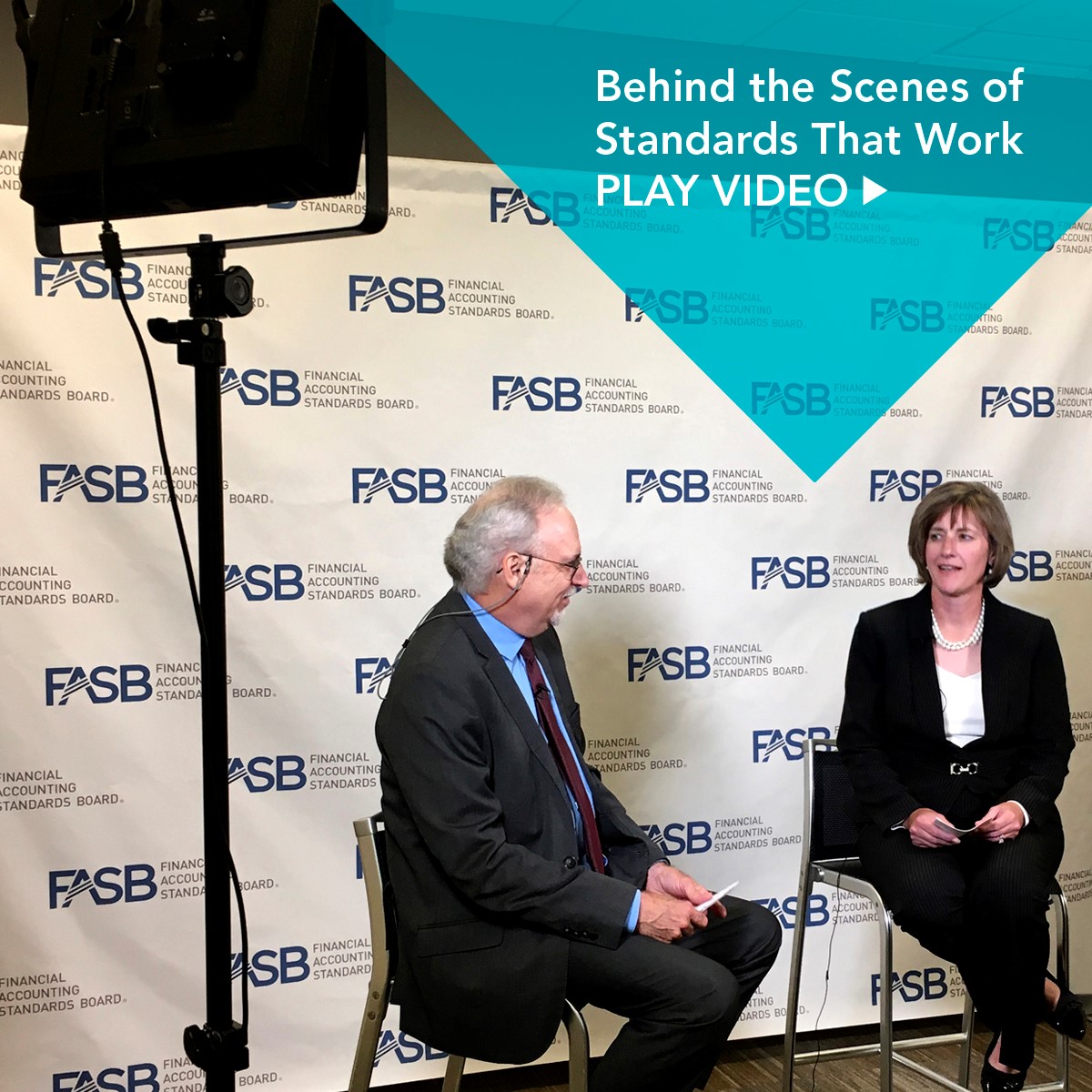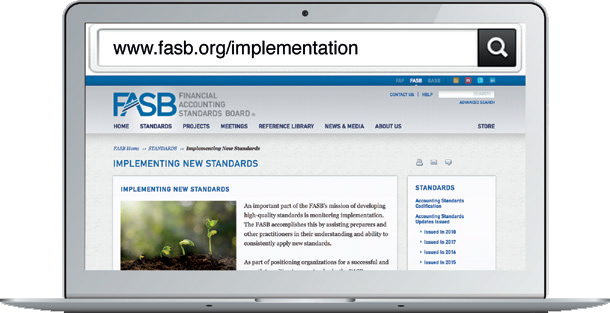
Standards That Work
Accounting standards that work provide relevant information to investors, lenders, citizens, and other financial statement users, helping them make better-informed decisions—decisions about whether to provide capital, lend or donate money, or support a voter referendum.
But for an accounting standard to work, people must be able to consistently understand it and correctly apply it. Therefore, our work doesn’t end when a final standard is issued. In some ways, it’s just beginning.
The FASB, the GASB, and the FAF want accounting standards to work for everyone. That is why the FASB and the GASB strive to help stakeholders implement their standards. The FAF participates by supporting the FASB and the GASB and by monitoring stakeholder perceptions of the standard-setting process.
From the stock market to the voting booth, standards that work result in better-informed decisions—decisions that affect the quality of people’s lives. Here is how we ensure standards work, and the important role our stakeholders play in that process.
Messages from the FAF, FASB, and GASB Leaders
Advisory Groups
Advisory and other groups provide critical input to the FASB and the GASB. Complete membership rosters for each group are available by clicking on the icons below. View All
Bonus Videos

Standards That Work: FASB
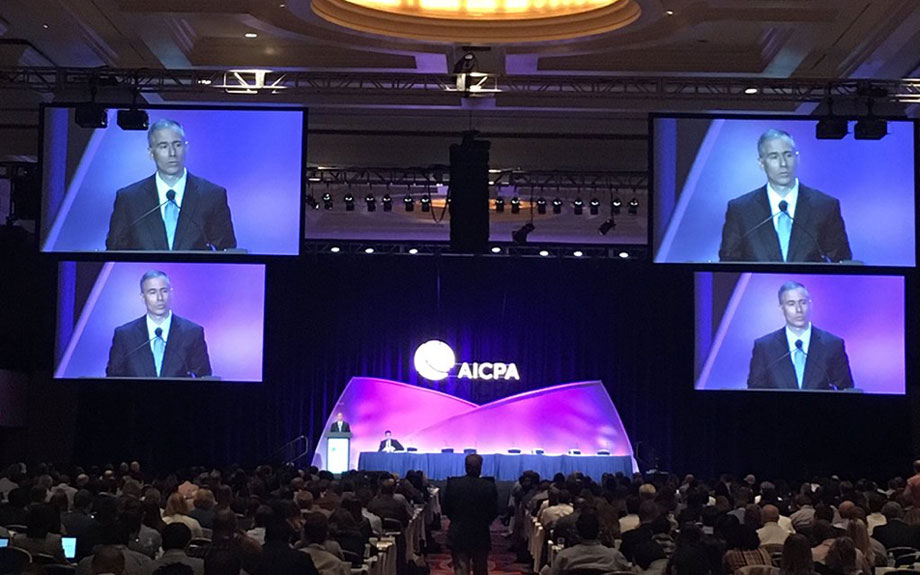
“We view quality implementation as critical to the overall success of a project. The greatest standard in the world won’t improve financial reporting if it can’t be reasonably applied or understood by preparers, auditors, or users.”
For the FASB, “continuous improvement” means ensuring that standards provide investors with better information at the right time. It means educating stakeholders and making clear “what we meant” when we issued a standard to reduce uncertainty around it. And it means continually communicating with stakeholders throughout the process to better understand the costs of a standard—which helps us make better decisions.
Stakeholder engagement is at the heart of that process. In 2017, that engagement focused on helping all our stakeholders understand and successfully implement major—and not-so-major—standards.
RESOURCES
Resource
Groups
items for formal
and informal
advisory groups
(FASB webcasts,
external
conferences)
Inquiry
Service
meetings about
implementation
issues / status
updates
HOW WE HEARD FROM OUR STAKEHOLDERS IN 2017
meetings
letters
NUMBERS:
IMPLEMENTATION
SUPPORT In 2017, the FASB
and its staff...
implementation
issues during 8 public Board
meetings
roundtables
discussions with 51 investors on
implementation
issues
reduce cost and/or
complexity of
existing standards
discussions about
implementation
issues
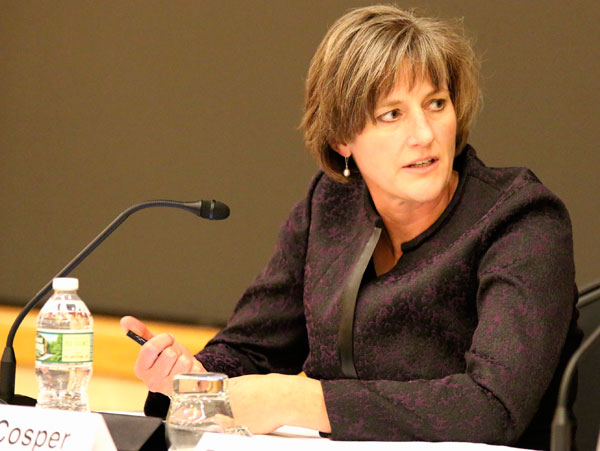
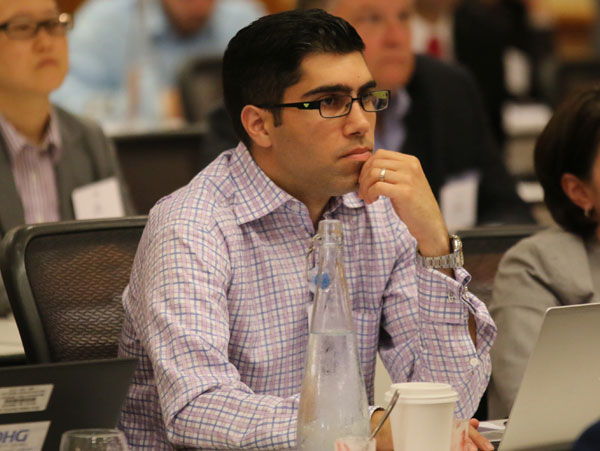

Standards That Work: GASB
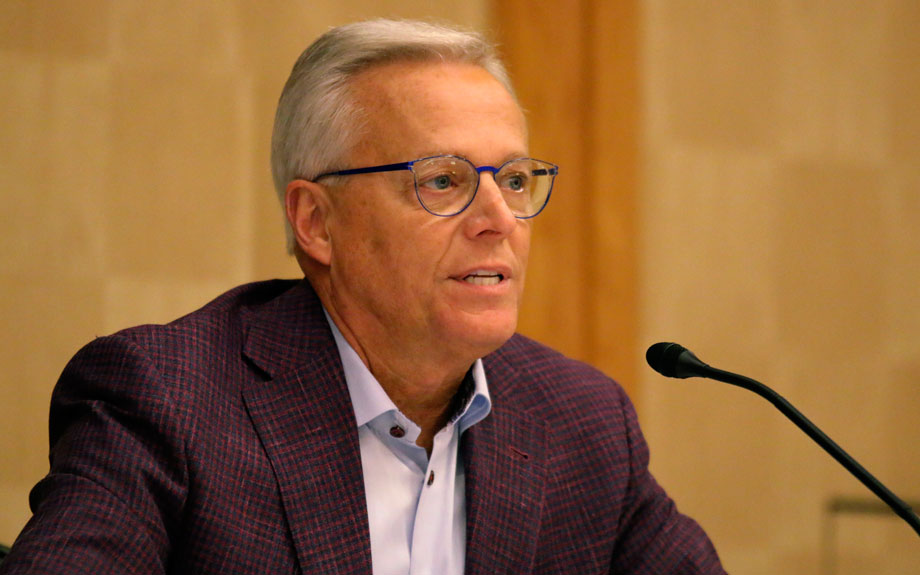
“The GASB’s work doesn’t stop with the issuance of a new standard— and in many ways, at that stage, it’s only begun. We work hard to make sure you have the appropriate tools to understand and implement the Board’s guidance.”
For the GASB, input from those who use, prepare, or audit state and local government financial reports is critical to developing standards that work. That’s why the GASB engages in robust stakeholder outreach throughout the duration of a project—a process that continues even after a final statement is issued.
In 2017, GASB stakeholders shared their views—and their questions—through comment letters, surveys, roundtables, technical inquiries, meetings, and other means of communication. Their input helped the GASB ensure standards provide citizens, investors, and other financial statement users with relevant information for better-informed decisions.
TECHNICAL INQUIRIES
a total of 1,282 technical inquiries
in 2017
HOW WE RECEIVED TECHNICAL INQUIRIES
![]()
![]()
![]()
![]()
STAKEHOLDER
OUTREACH
letters
activities
force meetings
participants
and surveys
GASB members and
staff presented
and users

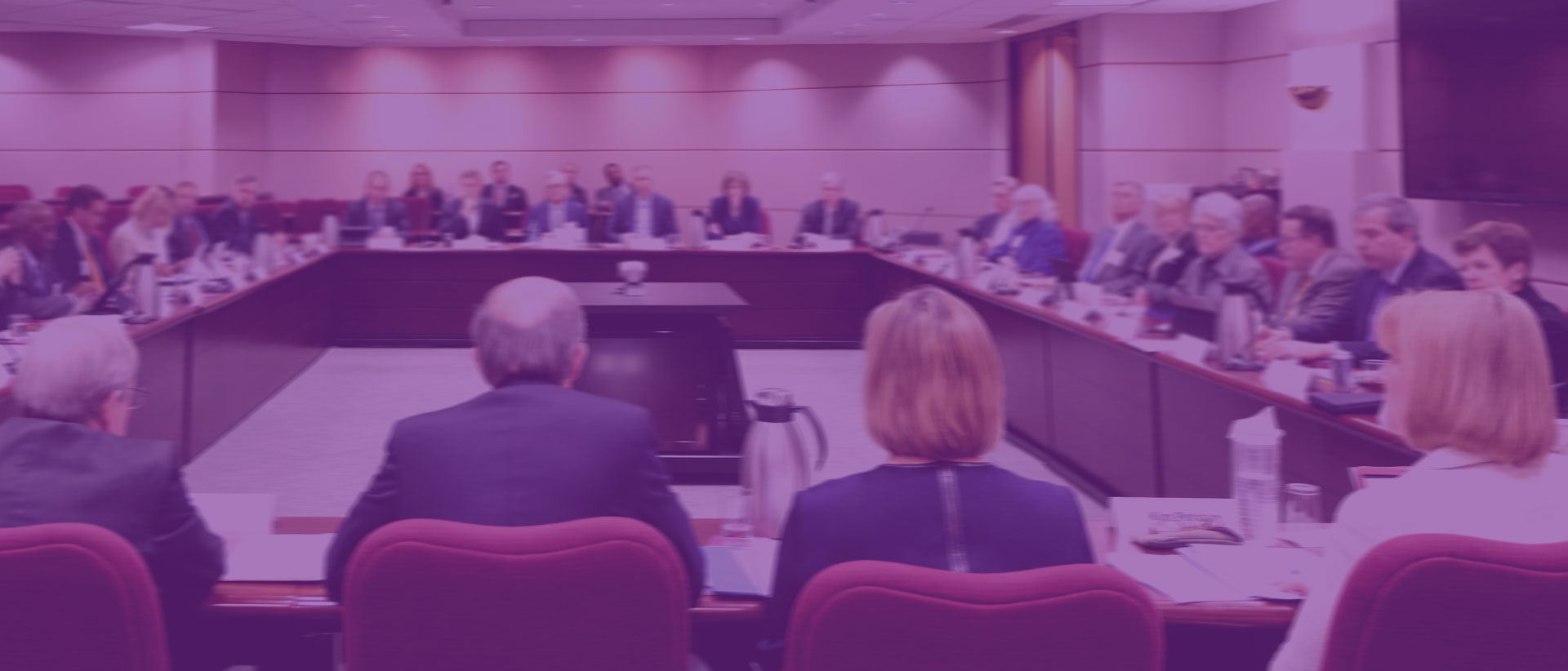
Supporting the Boards That Set Standards That Work: FAF
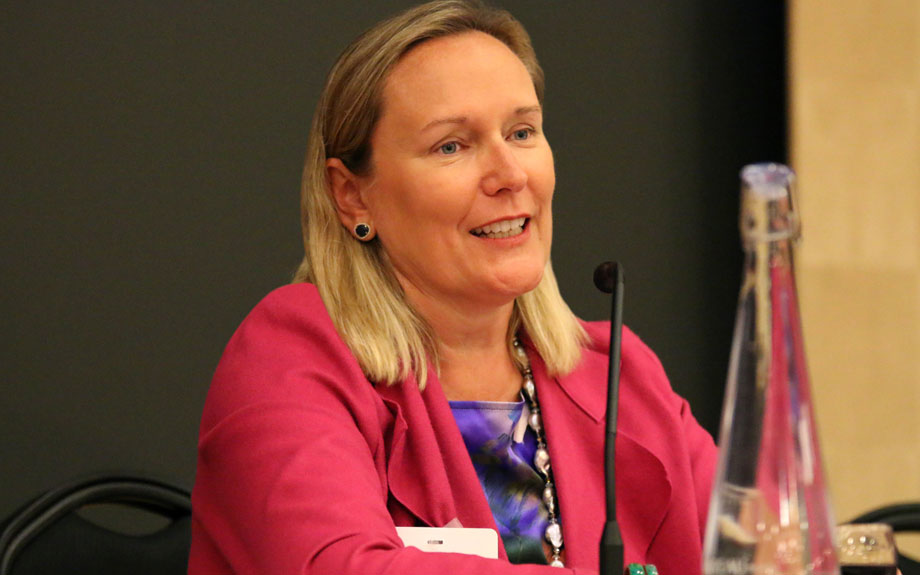
While the FASB and the GASB set the standards that constitute Generally Accepted Accounting Principles (GAAP), the FAF works to provide a solid foundation for their success. The FAF Trustees are responsible for providing oversight and promoting an independent and effective standard-setting process. The FAF management is responsible for providing strategic counsel and services that support the work of the standard-setting Boards.
of years of professional
experience of a
FAF Trustee
2017 BY THE NUMBERS: FAF OVERSIGHT AND MANAGEMENT
Diverse Professional Experience: FAF Board of Trustees
Investors
Practitioners
In 2017, the FAF published:
In 2017, the FAF Facilities staff
prepared a total of:
In 2017, the FAF Information Resource Center responded to:
In 2017, the FAF Public
Affairs staff issued:
In 2017, the FAF Public
Affairs facilitated:
Message from the FAF Chairman
and FAF President and CEO
Our collective mission is the establishment and improvement of high-quality financial accounting and reporting standards. A part of that mission is engaging with stakeholders to ensure that the standards work for investors, lenders, donors, citizens, academics, and other financial statement users who need an accurate picture of an organization’s financial condition and performance. The standards should also work for preparers, auditors, and other practitioners, so they can understand and apply the standards properly.
The standard-setting Boards—the Financial Accounting Standards Board (FASB) and the Governmental Accounting Standards Board (GASB)—are front and center in making standards work.
Meanwhile, in their stewardship role, the Financial Accounting Foundation (FAF) Board of Trustees makes sure the FASB and the GASB follow an independent and comprehensive standard-setting process. We also identify and appoint highly skilled people to those Boards.
In its support role, the FAF management team provides strategic counsel and ensures the Boards have the infrastructure and resources they need to successfully carry out their missions.
In 2017, both FAF roles were critical to helping the Boards ensure that standards work.
When the FAF Board of Trustees exercises effective oversight, the standard-setting Boards are more successful. That oversight includes ensuring that the Boards’ standard-setting processes work effectively.
For example, in 2017, the Board of Trustees completed its review of the GASB scope of authority consultation process policy. Introduced in 2013, the policy set forth a process for ensuring the GASB was addressing issues within the scope of its standard-setting mission. The Board of Trustees’ review found the policy strikes the right balance by maintaining the independence of the GASB, while ensuring appropriate oversight by the Trustees.
During the Board of Trustees’ quarterly public meetings, FASB and GASB members discuss their activities and progress. These dialogues are important to the oversight process. The robust dialogues provide the FAF Trustees (and stakeholders who attend or watch the meetings online) fresh insights about Board strategy and direction. Several conversations this year centered on the FASB and GASB’s outreach to stakeholders. This provided the Board of Trustees with clear evidence that stakeholder outreach processes in place are working as intended.
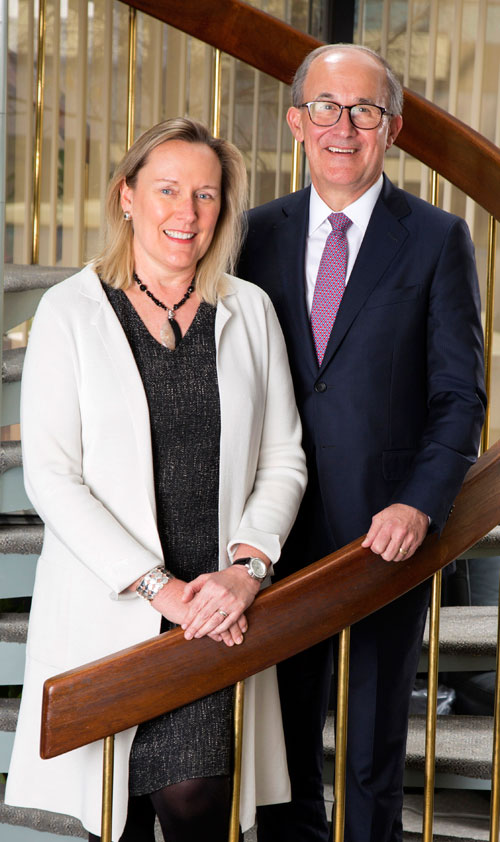
In 2017, the Trustees also made several appointments to the FASB, the GASB, and their respective advisory councils. Part of making standards work is understanding that the Boards don’t just need skilled standard setters, they need skilled communicators. We are confident that the appointees have demonstrated leadership in communication and stakeholder engagement—and a commitment to making standards work.
Finally, the Trustees worked hard to promote and protect the independence of the Boards and the standard-setting process. The Trustees make sure that the organizations reach out on an ongoing basis to elected and political leaders to educate them about our ongoing activities and discuss how the Boards can better serve investors and other users of financial statements. In 2017, the Trustees continued the tradition of meeting with key stakeholders on Capitol Hill, in the Administration, and at relevant industry groups.
Our 2017 brand reputation study provided us with valuable insights about stakeholder perceptions of the FASB and GASB’s standard-setting processes. Early in the year, we surveyed thousands of our stakeholders about their perceptions of FAF, FASB, and GASB performance, and how we can improve. More than 1,600 diverse stakeholders responded. The FAF, FASB, and GASB learned much from the study, and the data immediately helped us further improve the way (and what) we are communicating with stakeholders.
On the infrastructure front, the FAF management team continued to make significant progress on a multi-year information technology (IT) transformation project. This initiative is creating the technology tools the standard-setting Boards need to carry out their responsibilities more effectively and efficiently. In 2017, the FAF management team built a customer relationship management platform that helps the Boards better engage with their stakeholders. With FASB and GASB members and staff delivering hundreds of speeches around the country each year, the speaker request portal was also upgraded. Now available through the FASB, GASB, and FAF websites, the portal guides stakeholders, step by step, through the process of requesting FASB, GASB, and FAF speakers.
Lastly, the FAF management team is assessing our publishing and content fulfillment and distribution platforms. Given the age of our current content platform and the changing trends in publishing, this assessment will ensure that our stakeholders continue to get what they need from the FASB and the GASB in an effective, timely, and cost-efficient manner.
Although the FAF, FASB, and GASB each have different roles, we’re all committed to the development of high-quality accounting standards and engaging with stakeholders to ensure that the standards work. On behalf of the FAF, thank you for your interest and involvement in our mission.
Sincerely,

Charles H. Noski
Chairman

Teresa S. Polley
President and CEO
FAF Board of Trustees
Pictured from left to right, seated:
Charles H. Noski
Retired Vice Chairman
Bank of America
Nancy K. Kopp
Treasurer
State of Maryland
David C. Villa
Chief Investment Officer
State of Wisconsin Investment Board
Susan J. Carter
Independent Director
BlackRock Equity/Liquidity Mutual Fund Board, Pacific Pension and Investment Institute
Gary H. Bruebaker
Chief Investment Officer
Washington State Investment Board
Christine M. Cumming
Retired First Vice President and Chief Operating Officer
Federal Reserve
Bank of New York
Terry D. Warfield
PwC Professor in Accounting and Richard J. Johnson Chair, Department of Accounting and Information Systems
University of Wisconsin, Madison
Diane M. Rubin
Retired Audit
Partner and Quality Control Partner
Novogradac &
Company LLP
John B. Veihmeyer
Retired Chairman
KPMG International
Teresa S. Polley
President and Chief
Executive Officer
Financial Accounting
Foundation
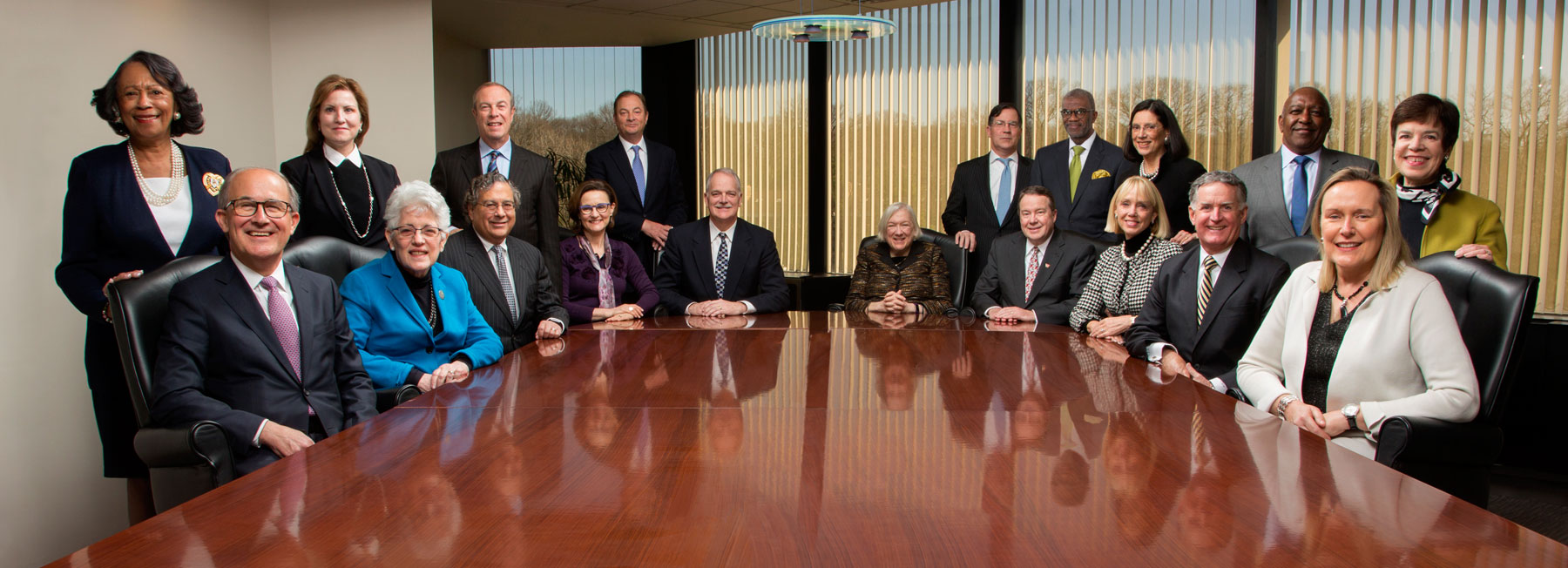
Pictured from left to right, standing:
T. Eloise Foster
Chair
Maryland Supplemental
Retirement Plans
Kathleen L. Casey
Senior Advisor
Patomak Global
Partners LLC
Jeffrey L. Esser
Executive Director Emeritus
Government Finance Officers Association
Charles M. Allen
Co-Chairman
Crowe Horwath International
Anthony J. Dowd
President and Chief Executive Officer
Fairfield-Maxwell LTD.
Eugene Flood, Jr.
Independent Director
Janus Henderson Group
Myra R. Drucker
Independent Director
Grantham, Mayo, Van Otterloo & Co. LLC
Kenneth B. Robinson
Senior Vice President, Internal Audit and Financial Controls
Exelon Corporation
Ann M. Spruill
Retired Partner
GMO & Co. LLC
OFFICERS
Charles H. Noski
Chairman
Gary H. Bruebaker
Vice Chairman
Christine M. Cumming
Secretary and Treasurer
Teresa S. Polley
President and
Chief Executive Officer
Mary P. Crotty
Chief Operating Officer
John W. Auchincloss
Vice President,
General Counsel and Assistant Secretary
TRUSTEE COMMITTEES
Charles H. Noski,
Chairman
Gary H. Bruebaker,
Vice Chairman
Myra R. Drucker
Nancy K. Kopp
Kenneth B. Robinson
Ann M. Spruill
Terry D. Warfield
Ann M. Spruill,
Chair
Charles M. Allen
Christine M. Cumming
Anthony J. Dowd
Myra R. Drucker
T. Eloise Foster
Kenneth B. Robinson
Diane M. Rubin
Kenneth B. Robinson,
Chair
Gary H. Bruebaker
Susan J. Carter
Christine M. Cumming
Jeffrey L. Esser
John B. Veihmeyer
David C. Villa
Myra R. Drucker,
Chair
Gary H. Bruebaker
Susan J. Carter
Jeffrey L. Esser
Eugene Flood, Jr.
Ann M. Spruill
David C. Villa
Standard-Setting
Process Oversight
Nancy K. Kopp,
Co-Chair
Terry D. Warfield,
Co-Chair
Charles M. Allen
Kathleen L. Casey
Anthony J. Dowd
Eugene Flood, Jr.
T. Eloise Foster
Diane M. Rubin
John B. Veihmeyer
Welcome
During the past year, the FAF Board of Trustees welcomed Kathleen L. Casey, Jeffrey L. Esser and David C. Villa.
Joined January 1, 2018
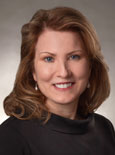
Kathleen L. Casey
Senior Advisor
Patomak Global
Partners LLC
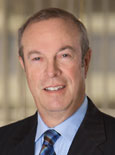
Jeffrey L. Esser
Executive Director Emeritus
Government Finance Officers Association
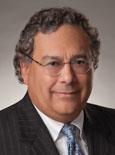
David C. Villa
Chief Investment Officer
State of Wisconsin Investment Board
Thank You
During the past year, Ann Marie Petach, Charles S. Cox and John C. Dugan concluded terms on the FAF Board of Trustees. On behalf of the entire organization, we thank them for their outstanding service.
Completed service on December 31, 2017
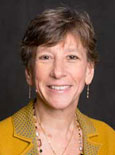
Ann Marie Petach
(FAF Secretary and Treasurer)
Director
BlackRock Institutional Trust Company
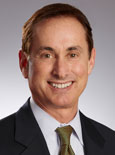
Charles S. Cox
City Manager
City of Farmers
Branch, Texas
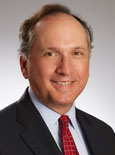
John C. Dugan
Former U.S.
Comptroller of the Currency (2005–2010)
Independent Director, Board of Directors
Citi
Message from the FASB Chairman
A standard that works provides information that helps investors, lenders, and other users make better-informed decisions. A standard that works can be consistently understood and applied. Financial statement users get real value from a standard that works—value that justifies the cost incurred to implement it.
You may know of, or participate in, the FASB’s time-tested process for developing standards that work. What you may not know is the process begins long before we add a project to our agenda, and continues long after we issue a final standard. We continually engage with all our stakeholders throughout the entire life cycle of a standard—including those who prepare, use, or audit financial statements of public and private companies, not-for-profit organizations, and even employee benefit plans.
Our agenda consultation project in 2017 showcases this approach. Standards that work begin with a strong technical agenda, which requires that the Board identify the right accounting issues to address. In September 2017, after two years of outreach, the FASB added three new agenda projects. They include projects on distinguishing liabilities and equity, a component of the FASB’s financial performance reporting research project, and a narrow-scope project on segment reporting intended to improve aggregation criteria and segment disclosures.
Diverse stakeholders identified these issues as priorities—and the Board felt they could be successfully addressed through standard-setting solutions with our existing resources in a timely manner.
On the other hand, several projects didn’t make the cut. Either they weren’t priorities or lacked what the Boards viewed as viable standard-setting solutions. Knowing when to say “no” to a project is as important as selecting the right projects—especially when time and resources are limited.
In 2017, we also made standards work by supporting your efforts to implement them.

We launched, with some excitement, our first FASB implementation web portal. It’s a “chock-a-block” of information preparers need to implement revenue recognition, credit losses, leases, not-for-profit financial reporting, and other standards. It also features educational videos for investors. Originally suggested by the Financial Accounting Standards Advisory Council (FASAC), the portal is yet another example of the importance of stakeholder input. More than 31,500 page views later, we can safely say it’s been a great success.
Portal visitors can even link directly to our staff specialists through the FASB Technical Inquiry Service. This long-standing resource allows stakeholders to submit technical questions about any of our standards. We rely heavily on this and other tools to shine a light on potential trouble spots that may need additional clarification or even standard-setting action. For example, in 2017, stakeholders expressed concerns around certain aspects of the new leases standard, including land easements and transition approach. The FASB responded by making the guidance less costly and complex to implement. Let me emphasize here that we did this without degrading the quality of information provided to investors.
Finally, in August 2017, we issued a new Derivatives and Hedging standard. To develop it, the FASB considered 60 comment letters, held numerous conference calls with investors and other users of financial statements, and held 2 public roundtables, which included preparers, auditors, regulators, and others. We also met with our Private Company Council to discuss private company hedge documentation issues. The result is a standard that works because all stakeholder audiences were part of the process.
Even so, we didn’t rest on our laurels. When organizations that early adopted the standard had questions about the definition of pre-payable instruments, we clarified it. We also went back to the standard-setting table to update the list of U.S. benchmark interest rates in response to actions taken by the Federal Reserve Board.
In 2018, we will continue to support your success in implementing our standards. We’ll continue to respond to and monitor your questions and—when necessary—resolve issues through more standard setting.
We also will issue a final standard on long-duration insurance contracts, one that will improve financial reporting for those companies in the business of underwriting products like life insurance, disability income, long-term care, and annuities.
Finally, we expect to complete work on our disclosure framework project, meaning we’ll finalize guidelines on how the Board makes decisions. The completed framework promotes consistent decisions by the FASB—over time and regardless of membership—about disclosure requirements, while also guiding reporting organizations in making disclosures.
The FASB is committed to creating standards that work. We encourage you to help us by sharing your views throughout the process, and we thank you for your continued involvement.
Sincerely,

Russell G. Golden, Chairman
Members of the FASB
Pictured from left to right, front row
Harold L. Monk, Jr.
Board Member
Susan M. Cosper
Technical Director
Russell G. Golden
Chairman
James L. Kroeker
Vice Chairman
R. Harold Schroeder
Board Member
Pictured from left to right, back row:
Christine Ann Botosan
Board Member
Marc A. Siegel
Board Member
Marsha L. Hunt
Board Member
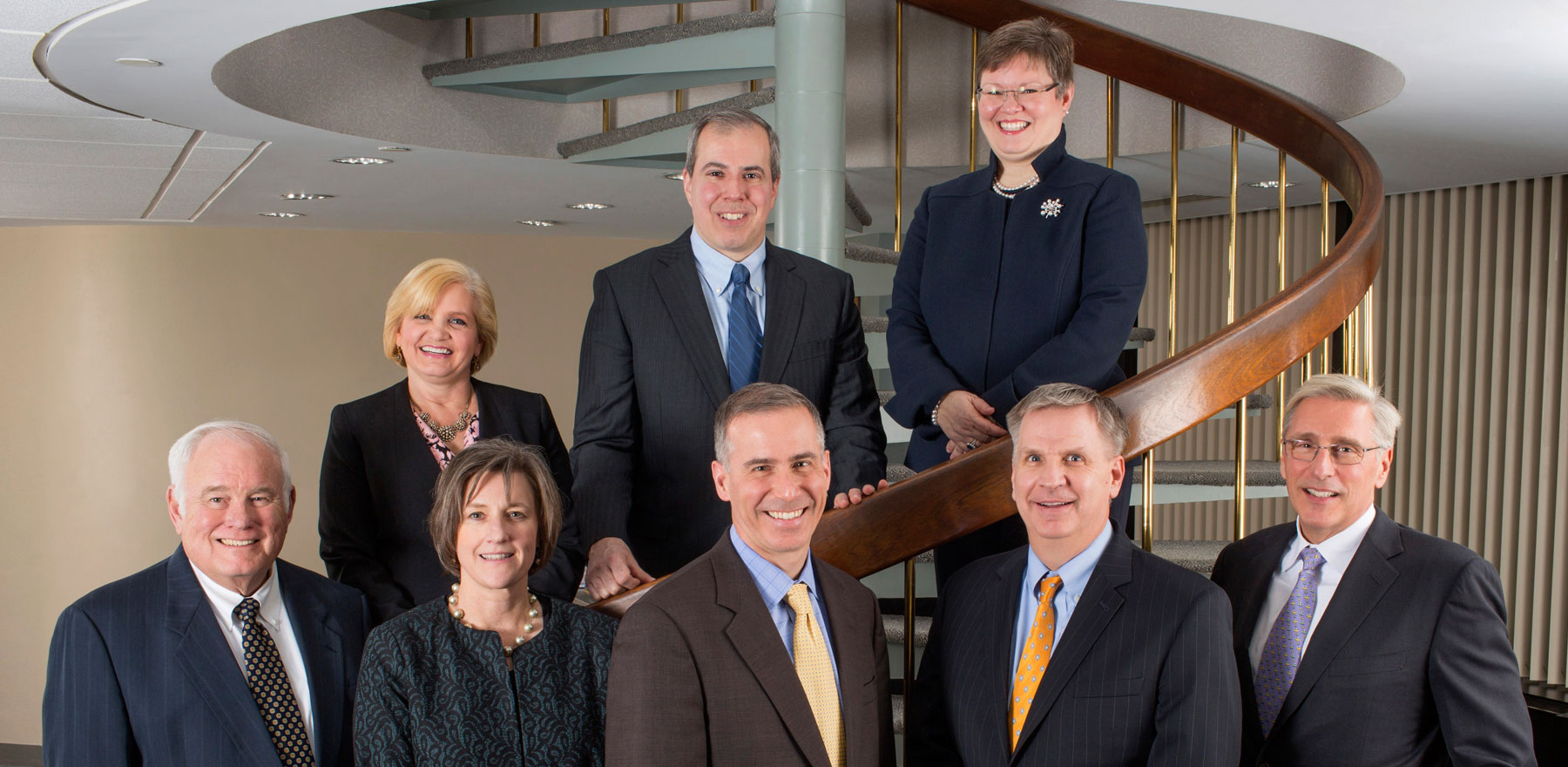
2017 FASB Highlights
Key Standards Issued in 2017
- Derivatives and Hedging: Targeted Improvements to Accounting for Hedging Activities
- Accounting for Certain Financial Instruments with Down Round Features
- Replacement of the Indefinite Deferral for Mandatorily Redeemable Financial Instruments of Certain Nonpublic Entities and Certain Mandatorily Redeemable Noncontrolling Interests with a Scope Exception
- Compensation—Stock Compensation: Scope of Modification Accounting
- Receivables—Nonrefundable Fees and Other Costs: Premium Amortization on Purchased Callable Debt Securities
- Compensation—Retirement Benefits: Improving the Presentation of Net Periodic Pension Cost and Net Periodic Postretirement Benefit Cost
- Other Income—Gains and Losses from the Derecognition of Nonfinancial Assets: Clarifying the Scope of Asset Derecognition Guidance and Accounting for Partial Sales of Nonfinancial Assets
- Intangibles—Goodwill and Other: Simplifying the Test for Goodwill Impairment
- Not-for-Profit Entities—Consolidation: Clarifying When a Not-for-Profit Entity That Is a General Partner or a Limited Partner Should Consolidate a For-Profit Limited Partnership or Similar Entity
- Business Combinations: Clarifying the Definition of a Business
- Codification Improvements to Topic 995, U.S. Steamship Entities: Elimination of Topic 995
Emerging Issues Task Force Consensuses
Advisory Groups
Advisory and other groups provide important input to the FASB on projects, standards, and implementation efforts. Complete membership rosters for each group are available by clicking on the group's icon below.
Welcome
During the past year, the FASB welcomed Marsha L. Hunt.
Joined July, 1, 2017
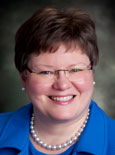
Marsha L. Hunt
Prior to joining the
FASB, Ms. Hunt served as Vice
President and Corporate Controller
for Cummins Inc.
Thank You
During the past year, Lawrence W. Smith concluded terms on the FASB. On behalf of the entire organization, we thank him for his outstanding service.
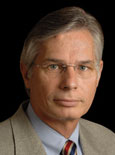
Lawrence W. Smith
Served on the FASB
from July 1, 2007 to
June 30, 2017.
Message from the GASB Chairman
Standards that work give citizens, investors, analysts, and others the information they need to be well-informed about the financial health of state and local governments. Helping orient stakeholders on what our standards mean, and how to implement them, also is critical, and we take this work seriously.
Think of it as a journey that we travel together with our stakeholders. We’re by their side when new standards are far off on the horizon—and when they’re fast approaching. We are with them on the day the standard takes effect and remain with them long after new standards are fully applied.
Education in Action
In 2017, GASB members and staff made more than one hundred in-person presentations across the country to help educate preparers, policymakers, auditors, and users about what new standards are on the horizon. This early engagement gives everyone a chance to prepare with significant lead time. Getting ready for the standards around the healthcare benefits governments provide to their retired employees, for example, was a central theme of those discussions—and will continue to be as governments adopt the new standards.
While these presentations can range from high level to highly detailed, they are tailored to give each audience the knowledge it needs now, when future action is required, and how to get more information.
New OPEB Implementation Guides
Among the best sources for answers to questions about the fast-approaching standards on retiree health-care benefits (which we call Other Post-employment Benefits or OPEB) are the Implementation Guides the Board issued last May on OPEB plan reporting and last December on accounting and financial reporting on OPEB for governments.
Together, these guides answer questions we received at presentations, through the website, by email, on the telephone, and in other ways.
These “Q&As” offer details on how to approach a specific issue to comply with a certain area of the standard. Beyond OPEB, we offer authoritative implementation guidance on many topics, all available at no charge on our website.
Implementation Guides on Fiduciary Activities and Leases Underway
Stakeholder feedback is one of the best ways we have to make sure our standards are working, especially after they have taken effect. As a result of comments from stakeholders, in December the GASB started working on guides for two recent standards: fiduciary activities and accounting for leases.

These standards are important in their own right, but also raise a variety of specific stakeholder questions about how to implement them effectively. We’ll be working to develop these Implementation Guides over much of 2018, and plan to issue drafts toward the end of the year and into early 2019.
New Guidance to Fine-Tune and Clarify Existing Standards
The GASB also works to address issues identified by stakeholders about how already-existing standards are operating. In March 2017, the Board issued Statement No. 85, Omnibus 2017, that fine-tunes and clarifies areas of recent guidance, including such issues as fair value reporting, pensions and OPEB, and blending component units. Statement 85 will help reduce uncertainty and enhance consistency in applying the standards—and should improve how useful they are.
GASB Technical Inquiry System Answers Your Questions
I want to emphasize that standards that work can mean different things to different people. Sometimes, despite all the presentations, Implementation Guides, and additional fine-tuning and clarification, questions remain. It’s understandable, because the nation’s nearly 90,000 state and local governments, while having much in common, also are a cornucopia of unique facets and features.
Given the specific facts and circumstances a government faces, understanding what makes a standard work may require a one-on-one conversation with a member of the GASB staff.
Every year, our staff holds well over 1,000 such conversations to talk through just how our standards apply in a particular case. After studying the standards, exploring the implementation guidance and other related accounting literature, if you still cannot resolve your accounting or financial reporting issue, I would encourage you to reach out to the GASB staff for assistance through our Technical Inquiry System.
Thank You—and Let Us Hear from You!
Without question, the rich input our diverse range of stakeholders provides helps shape, guide, and inform the Board’s activities. In the end, the standards that work the best are the ones in which our stakeholders are most involved. Hearing from you throughout our process is critical to developing standards that work. We appreciate and thank you for your ideas, energy, and involvement—and look forward to continuing to work together this year and beyond.
Sincerely,

David A. Vaudt, Chairman
Members of the GASB
Pictured from left to right, front row
David E. Sundstrom
Board Member
Jeffrey J. Previdi
Vice Chairman
David A. Vaudt
Chairman
Kristopher E. Knight
Board Member
James E. Brown
Board Member
Pictured from left to right, back row:
David R. Bean
Director of Research and
Technical Activities
Brian W. Caputo
Board Member
Michael H. Granof
Board Member
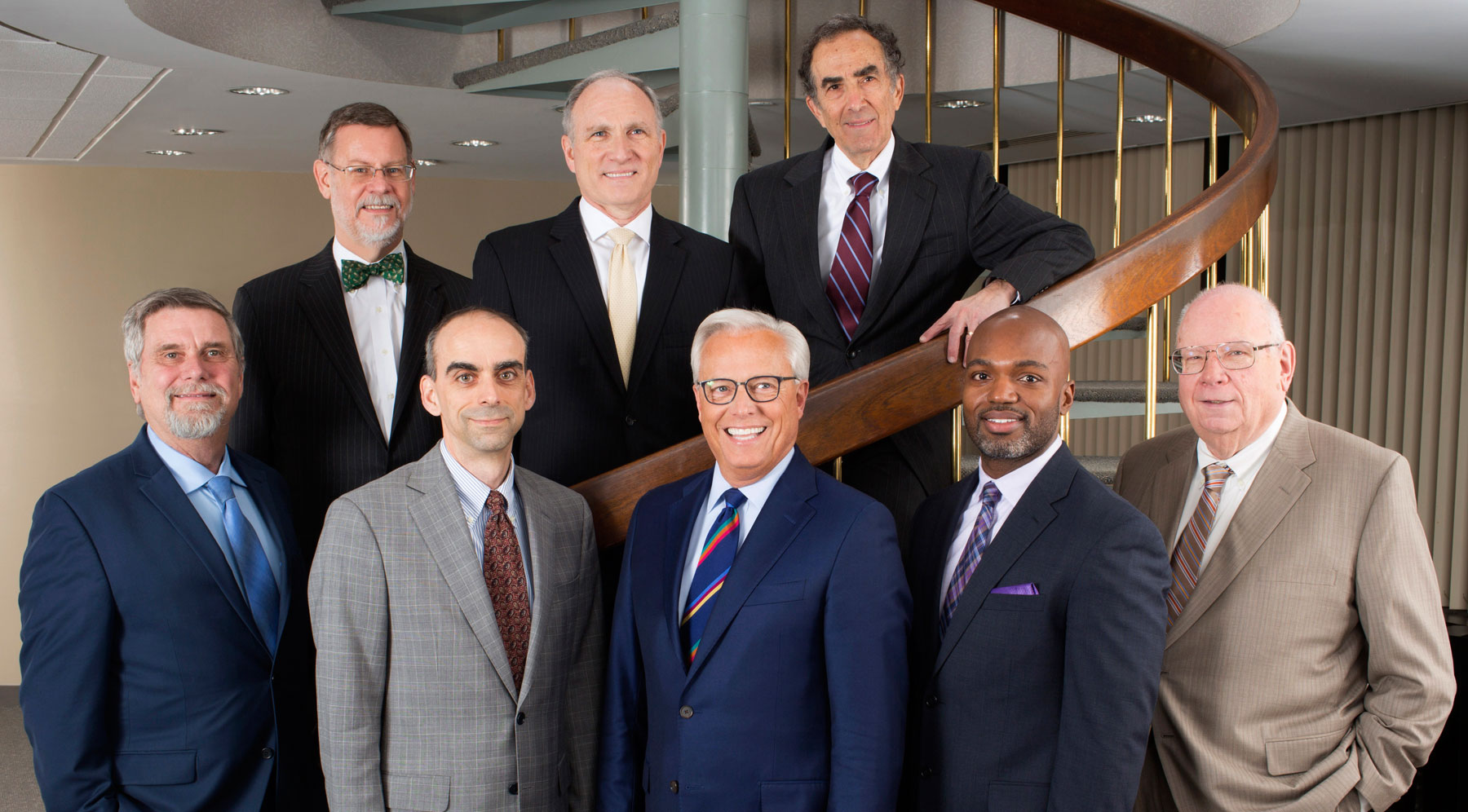
2017 GASB Highlights
Final Statements
Implementation Guides
- Implementation Guidance Update—2017
- Financial Reporting for Postemployment Benefit Plans Other Than Pension Plans
- Accounting and Financial Reporting for Postemployment Benefits Other Than Pensions (and Certain Issues Related to OPEB Plan Reporting)
- Certain Disclosures Related to Debt, including Direct Borrowings and Direct Placements
- Accounting and Financial Reporting for Majority Equity Interests
- Accounting for Interest Cost during the Period of Construction
- Implementation Guidance Update—201Y
Governmental Accounting Standards
Advisory Council (GASAC)
The GASAC is responsible for consulting with the GASB on technical issues on the Board’s agenda, project priorities, matters likely to require the attention of the GASB, selection and organization of task forces, and such other matters as may be requested by the GASB or its chairman. More information about the GASAC—including complete membership roster—is available here.
Welcome
During the past year, the GASB welcomed Kristopher E. Knight.
Joined July, 1, 2017
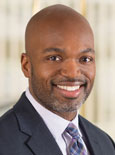
Kristopher E. Knight
Mr. Knight is Delaware's
deputy secretary of state and
director of the state's Division
of Corporations.
Thank You
During the past year, Jan I. Sylvis concluded terms on the GASB. On behalf of the entire organization, we thank her for her outstanding service.

Jan I. Sylvis
Served on the GASB from
July 1, 2007 to June 30, 2017;
Vice Chair of the GASB from
January 1, 2015 to June 30, 2017.
FASB/GASB: Where We Were in 2017
In 2017, representatives of the FASB and the GASB traveled to 46 states (including the District of Columbia) to address stakeholders at events around the country.


About Us



Financial reporting is the language that communicates information about the financial condition and operational results of a company (public or private), not-for-profit organization, or state or local government. Accounting standards determine how those financial statements are prepared. The standards are known collectively as Generally Accepted Accounting Principles—or GAAP.
The Financial Accounting Foundation (FAF) is the independent, private-sector, not-for-profit organization based in Norwalk, Connecticut, responsible for the oversight, administration, financing, and appointment of the Financial Accounting Standards Board (FASB) and the Governmental Accounting Standards Board (GASB).
The FASB establishes financial accounting and reporting standards for public and private companies and not-for-profit organizations.
The GASB establishes financial accounting and reporting standards for U.S. state and local governments.
The FASB and the GASB are responsible for ensuring that GAAP remains the high-quality benchmark of financial reporting so that investors, lenders, capital providers, and other users of financial statements have access to the information they need to make better-informed decisions.
Our Mission
The collective mission of the FASB, the GASB, and the FAF is to establish and improve financial accounting and reporting standards so they provide useful information to investors and other users of financial reports and to educate stakeholders on how to most effectively understand and implement those standards.
The FASB, the GASB, the FAF Trustees, and the FAF management contribute to the collective mission according to each one’s specific role:
- The FASB and the GASB are charged with setting the highest-quality standards through a process that is robust, comprehensive, and inclusive.
- The FAF management is responsible for providing strategic counsel and services that support the work of the standard-setting Boards.
- The FAF Trustees are responsible for providing oversight and promoting an independent and effective standard-setting process.
Advisory Groups
Advisory and other groups provide critical input to the FASB and the GASB. Complete membership rosters for each group are available by clicking on the group's icon below.
FASB ADVISORY GROUPS
Financial Accounting Standards Advisory Council
Advises the FASB on issues related to projects on the Board’s agenda, possible new agenda items, project priorities, procedural matters that may require the attention of the FASB, and other matters as requested by the chairman of the FASB. FASAC meetings provide the Board with an opportunity to obtain and discuss the views of a very diverse group of individuals from varied business and professional backgrounds.
Investor Advisory Committee
Provides advice, from the investors’ perspective, on current and potential FASB agenda projects.
Not-for-Profit Advisory Committee
Provides advice on existing guidance, current and proposed technical agenda projects, and longer-term issues related to the not-for-profit sector.
Small Business Advisory Committee
Provides advice on FASB projects related to the operationality and the anticipated costs, complexities, and benefits of potential solutions principally from a small public company perspective.
OTHER KEY FASB GROUPS
Emerging Issues Task Force
The mission of the EITF is to assist the FASB in improving financial reporting through the timely identification, discussion, and resolution of financial accounting issues within the framework of the FASB Accounting Standards Codification®.
Private Company Council
The PCC is the primary advisory body to the FASB on private company matters. The PCC uses the Private Company Decision-Making Framework to advise the FASB on the appropriate accounting treatment for private companies for items under active consideration on the FASB’s technical agenda. The PCC also advises the FASB on possible alternatives within GAAP to address the needs of users of private company financial statements. Any proposed changes to GAAP are subject to endorsement by the FASB.
GASB ADVISORY GROUPS
Governmental Accounting Standards Advisory Council
Consults with the GASB on technical issues on the Board’s agenda, project priorities, matters likely to require the attention of the GASB, and such other matters as may be requested by the GASB. GASAC meetings provide the Board with an opportunity to obtain and discuss views with a broad representation of preparers, auditors, and users of financial information.
GASB Consultative Groups
Groups that are assembled at the discretion of the GASB chairman for pre-agenda research that is expected to be extensive and to address a broad or fundamental portion of the accounting and financial reporting standards.
GASB Task Forces
Task forces that are assembled for most major projects and serve as a sounding board as a project progresses.
Financial Accounting Standards Advisory Council
Advises the FASB on issues related to projects on the Board’s agenda, possible new agenda items, project priorities, procedural matters that may require the attention of the FASB, and other matters as requested by the chairman of the FASB. FASAC meetings provide the Board with an opportunity to obtain and discuss the views of a very diverse group of individuals from varied business and professional backgrounds.
FASAC Chair
Andrew G. McMaster, Jr.
FASAC Executive Director
Alicia A. Posta
Members
Kimber Bascom
Partner
KPMG LLP
Avi Berg*
Portfolio Manager and Analyst
Elm Ridge Capital Management
Stuart Birdt
Wealth Manager
Manchester Capital Management LLC
Rudolph Bless*
Chief Accounting Officer
Bank of America
Susan M. Callahan
Director, Americas Accounting and Global Accounting Policy
Ford Motor Company
Gordon Edwards*
Chief Financial Officer
Marshfield Clinic Health System
Richard E. Forrestel, Jr.
Treasurer
Cold Spring Construction Company, Inc.
Marie T. Gallagher
Senior Vice President and Controller
PepsiCo, Inc.
Sydney Garmong
Partner
Crowe Horwath LLP
Zachary Gast*
Global Head of Research
CFRA
Sameer Gokhale
Senior Director Investor Relations
Fifth Third Bancorp
Elizabeth Graseck*
Managing Director
Research, Morgan Stanley
Jeffrey Hales
Catherine W. and Edwin A. Wahlen, Jr.
Professor of Accounting
Georgia Institute of Technology
Richard R. Jones
Partner — Director of Accounting
EY
Mark LaMonte
Managing Director
Moody’s Investors Service
Sean C. Miller
Senior Vice President—Technical Accounting and Compliance
Sony Pictures Entertainment
Gregg L. Nelson
Vice President and Chief Accounting Officer
IBM Corporation
Douglas R. Oare
Managing Director
BlackRock, Inc.
David Schmid*
Partner
PwC
Cathy Shakespeare
Associate Professor of Accounting
University of Michigan
Sherry M. Smith
Board of Directors
Deere & Company, Tuesday Morning Corporation,
and Realogy Holdings Corporation
Lee Sotos
Senior Analyst
Fidelity Worldwide Investment
Amie Thuener*
Vice President, Chief Accountant
Alphabet
Ted T. Timmermans
Vice President, Controller, and Chief Accounting Officer
The Williams Companies, Inc.
Sharon A. Virag
Chief Financial Officer
NeoGenomics Laboratories, Inc.
Joan E. Waggoner
Partner in Professional Standards
Plante Moran, PLLC
John White*
Partner—Corporate
Cravath, Swaine & Moore, LLP
Thomas W. White
Partner
WilmerHale LLP
Randall Woods
Principal/Head of Investing for Pension Funds
RJW Financial Services
Teri Yohn*
Conrad Prebys Professor of Accounting
Indiana University
*New members in 2018
Completed Service in 2017
R. Scott Blackley
Chief Financial Officer
Capital One
Gary Buesser
Director
Lazard Asset Management
Colleen K. Conrad
Executive Vice President and Chief Operating Officer
National Association of State Boards of Accountancy
Xihao Hu
Executive Vice President, Finance
and Head of Accounting, Tax, Planning and Finance Shared Services
TD Bank
Timothy J. LaSpaluto
Chief Financial Officer
AICPA
Dan Mahoney
Director of Research
CFRA
Maya McReynolds
Vice President Finance and Chief Accounting Officer
Dell Inc.
Daniel S. Meader
Principal
Trinity Private Equity Group LP
John G. Morriss
Senior Vice President, Head of Fixed Income Research, Investment Management
Lincoln Financial Group
Thomas Omberg
National Leader, Financial Accounting and Reporting Services
Deloitte & Touche LLP
Dave Sullivan
National Managing Partner—Quality & Professional Practice
Deloitte & Touche LLP
Jeffrey Wilks
Director and EY Professor
School of Accountancy
Brigham Young University
Louis Zahorak
Investment Director
CalPers
Investor Advisory Committee
Provides advice, from the investors’ perspective, on current and potential FASB agenda projects.
IAC Chair
Susan M. Cosper
Technical Director
Financial Accounting Standards Board
Members
Todd Castagno
Executive Director and Equity Research Analyst
Morgan Stanley
Yoni Engelhart*
Partner
Schilit Forensics
Trevor Harris
Arthur J. Samberg Professor of Professional Practice
Accounting
Columbia Business School
Katherine Hensel
Private Investor
Shripad Joshi
Senior Director
S&P Global Ratings
Brian Kleinhanzl*
Managing Director
Keefe, Bruyette & Woods, Inc.
Jill Lehman
Head of Healthcare and TMT Research
CFRA
Janet Pegg*
Senior Analyst
Zion Research Group
Matt Schechter
Head, Forensic Accounting
Balyasny Asset Management LP
Steven Y. Yang
Investment Analyst
Folger Hill Asset Management
*New members in 2018
Completed Service in 2017
Frederick Cannon
Global Director of Research, Chief Equity Strategist,
and Executive Vice President
Keefe, Bruyette, & Woods, Inc.
Kevin W. Shea
Chief Executive Officer
Disciplined Alpha LLC
David Trainer
Chief Executive Officer
New Constructs LLC
Not-for-Profit Advisory Committee
Provides advice on existing guidance, current and proposed technical agenda projects, and longer-term issues related to the not-for-profit sector.
Committee Chair
Jeffrey D. Mechanick
Assistant Director—Nonpublic Entities
Financial Accounting Standards Board
Members
Alice Antonelli
Director, Advisory Services
Nonprofit Finance Fund
Cathy Clarke
Chief Assurance Officer
Clifton Larson Allen, LLP
Mary Connick
Senior Vice President, Finance & Corporate Controller
Dignity Health
Jim Croft
Principal
JWC Consulting Group
Formerly Executive Vice President
and Chief Financial Officer
The Field Museum of Natural History
Michael Forster
Chief Operating and Chief Financial Officer
Woodrow Wilson International Center for Scholars
Kelly Frank
CPA, Partner
Crowe Horwath LLP
David Gagnon
Partner, Audit
National Industry Leader, Higher Education and Other Not-for-Profits
KPMG LLP
Deborah Gillespie
Vice President, Finance and Administration and Secretary/Treasurer
The Joyce Foundation
John D. Griffin*
Senior Vice President and Controller
AARP
David C. Horne*
Chief Financial Officer
Island Peer Review Organization
Former Chief Financial Officer
March of Dimes
Kim E. Keenoy*
Vice President, Senior Portfolio Management Officer
Bank of America Merrill Lynch
John Kroll
Associate Vice President for Finance
The University of Chicago
Kimberly K. McKay*
Managing Partner
BKD, LLP
Carolyn Mollen
Vice President and Chief Financial Officer
Independent Sector
Dennis Morrone
Partner-in-Charge, National Not-for-Profit Audit Practice
Grant Thornton LLP
Andrew Prather
Shareholder
Clark Nuber PS
Amy B. Robinson
Vice President, Chief Financial Officer and Chief Administrative Officer
The Kresge Foundation
Tammy R. Waymire*
Associate Professor
Middle Tennessee State University
*New members in 2018
Observers
Dena Markowitz
Chief, Division of Investigations
Pennsylvania Bureau of Charitable Organizations
(representing National Association of State Charity Officials)
Christopher Cole
Senior Technical Manager and Not-For-Profit Expert Panel Staff Liaison
AICPA
Completed Service in 2017
Harvey Dale
University Professor of Philanthropy and the Law
Director, National Center of Philanthropy and the Law
New York University School of Law
Norman C. Mosrie
Partner
Dixon Hughes Goodman (DHG)
Linda M. Parsons
Associate Professor of Accounting
Culverhouse School of Accounting
University of Alabama
Bennett M. Weiner
Chief Operating Officer
Better Business Bureau Wise Giving Alliance
Small Business Advisory Committee
Provides advice on FASB projects related to the operationality and the anticipated costs, complexities, and benefits of potential solutions principally from a small public company perspective.
Committee Chair
Alicia A. Posta
Assistant Director
Financial Accounting Standards Board
Members
Gary J. Bachman
Chief Operating Officer
Pzena Investment Management, Inc.
Tim Caffrey
President
Ty View Capital
Rick Day
National Director of Accounting
RSM US LLP
John Exline
Chief Financial Officer
Clark Investment Group
David Gonzales
Vice President — Senior Accounting Analyst
Moody’s Investors Service
K. Scott Gray*
Senior Vice President and Chief Financial Officer
Luby’s, Inc.
Shannon Greene
Chief Executive Officer
Tandy Leather Factory, Inc.
David W. Hinshaw
Managing Partner, Professional Standards Group and SEC Practice
Dixon Hughes Goodman LLP (DHG)
Robert Hoffman
Chief Financial Officer and Senior Vice President, Finance
Heron Therapeutics
Cortney Johnson
Chief Financial Officer
All Web Leads, Inc.
Dominick Kerr*
Director—Global Accounting Practice
Connor Group
Greg Kowieski
Partner
Moss Adams LLP
Ryan LaFond*
Deputy Chief Investment Officer
Algert Group
Marshall Minoux
Underwriting Director/Construction Services
Travelers
Doug Reynolds
Partner, National Professional Consulting Group
Grant Thornton
Robert B. Vogt
Partner, Professional Practice Group
EY
John Zimmer
Managing Director
First Lake Advisors
*New members in 2018
Completed Service in 2017
William Waller
Portfolio Manager/Managing Member
M3 Funds, LLC and M3
Emerging Issues Task Force
The mission of the EITF is to assist the FASB in improving financial reporting through the timely identification, discussion, and resolution of financial accounting issues within the framework of the FASB Accounting Standards Codification®.
EITF Chair
Susan M. Cosper
Technical Director
Financial Accounting Standards Board
EITF Coordinator
Thomas Faineteau
Practice Fellow
Financial Accounting Standards Board
Members
Kimber Bascom*
Partner
KPMG LLP
Paul A. Beswick
Partner
EY
James G. Campbell
Corporate Controller
Alphabet Inc.
Terri Z. Campbell
Founder
Archer Bay Capital LLC
Alexander M. Corl
Chief Financial Officer and Treasurer
The Lee Company
Lawrence Dodyk*
Partner/U.S. Business Combinations Leader
PwC
Bret Dooley
Managing Director and Director of
Corporate Accounting Policies Group
JPMorgan Chase & Co.
Carl Kampel
Director in Charge of Professional Standards
Ellin & Tucker, Chartered
Mark LaMonte
Vice President — Senior Credit Officer,
Financial Institutions Group/
Accounting Specialist Group
Moody’s Investors Service
Ashwinpaul C. Sondhi
President
A.C. Sondhi & Associates, LLC
Robert Uhl
Partner
Deloitte & Touche LLP
*New members in 2017
Participating Observers
Sagar Teotia
Deputy Chief Accountant
U.S. Securities and Exchange Commission
James A. Dolinar
Partner
Crowe Horwath LLP
(FinREC Observer)
Yan Zhang
Partner
EisnerAmper LLP
(PCC Observer)
Completed Service in 2017
John M. Althoff
Partner
PwC
Robert B. Malhotra
Partner
KPMG LLP
Lawrence J. Salva
Senior Vice President, Chief Accounting Officer & Controller
Comcast Corporation
Mark Scoles
Partner-In-Charge, Accounting Principles
Grant Thornton LLP
Private Company Council
The PCC is the primary advisory body to the FASB on private company matters. The PCC uses the Private Company Decision-Making Framework to advise the FASB on the appropriate accounting treatment for private companies for items under active consideration on the FASB’s technical agenda. The PCC also advises the FASB on possible alternatives within GAAP to address the needs of users of private company financial statements. Any proposed changes to GAAP are subject to endorsement by the FASB.
PCC Chair
Candace Wright
Director
Postlethwaite & Netterville
FASB Liaison
Harold L. Monk, Jr.
Member
Financial Accounting Standards Board
PCC Coordinator
Michael K. Cheng
Senior Project Manager
Financial Accounting Standards Board
Members
Timothy J. Curt
Managing Director and Partner
Warburg Pincus LLC
Jeremy Dillard*
Partner
SingerLewak LLP
David J. Hirsch
Vice President, Finance
Pritzker Group Private Capital
David Lomax
Assistant Vice President and
Underwriting Officer
Liberty Mutual Insurance Company
Michael Minnis*
Associate Professor
University of Chicago Booth School of Business
Richard Reisig
Shareholder and Technical Director, Attest Services
Anderson ZurMuehlen & Company, PC
Dev Strischek*
Principal
Devon Risk Advisory Group
Frank Tarallo*
Chief Executive Officer
Theragenics Corporation
Beth I. van Bladel
Director
CFO for Hire LLC
Yan Zhang
Partner
EisnerAmper LLP
*New members in 2018
Completed Service in 2017
Steven Brown
Credit Risk Manager and Senior Vice
President
US Bank
Jeffery Bryan
Partner, Professional Standards Groups
Dixon Hughes Goodman LLP (DHG)
Lawrence E. Weinstock
Vice President—Finance
Mana Products, Inc
Governmental Accounting Standards Advisory Council
Consults with the GASB on technical issues on the Board’s agenda, project priorities, matters likely to require the attention of the GASB, and such other matters as may be requested by the GASB. GASAC meetings provide the Board with an opportunity to obtain and discuss views with a broad representation of preparers, auditors, and users of financial information.
GASAC Chairman
Robert W. Scott
Director, Finance
City of Brookfield, Wisconsin
(Nominated by the Government Finance Officers Association)
GASAC Vice Chairman
Alan Skelton
State Accounting Officer
State of Georgia
(Nominated by the National Association of State Auditors, Comptrollers and Treasurers)
Members
Peggy Arrivas*
Associate Vice President and Systemwide Controller
University of California
(Nominated by the National Association of College and University Business Officers)
Robert Balducci*
Comptroller
New York City Bond Financing Entities
(Nominated by the U.S. Conference of Mayors)
Benjamin Barnes
Secretary, Office of Policy and Management
State of Connecticut
(Nominated by the National Governors Association)
Patsy Brown*
Director of Accounting
Chesterfield County, Virginia
(Nominated by the National Association of Counties)
Thad Calabrese*
Associate Professor
Robert F. Wagner Graduate School of Public Service
New York University, New York
(Nominated by the Association for Budgeting and Financial Management)
Alan D. Conroy
Executive Director
Kansas Public Employees Retirement System
(Nominated by the Council of State Governments)
Wayne D. Gerhold
Principal
Law Offices of Wayne D. Gerhold
(Nominated by the National Association of Bond Lawyers)
Brian Green
Partner, Healthcare Audit and Reimbursement Services
Seim Johnson
(Nominated by the Healthcare Financial Management Association)
Demetria Hanna
Branch Chief, Economic Statistical Methods Division
U.S. Census Bureau
(Nominated by the U.S. Census Bureau)
Shirley D. Hughes
City Administrator
City of Liberty, South Carolina
(Nominated by the International City/County Management Association)
Paul Kwiatkoski*
Managing Director, Public Finance Sector
Kroll Bond Rating Agency
(Bond Rater)
James Lanzarotta
Partner
Moss Adams
(Nominated by the American Institute of Certified Public Accountants)
Gerard Lian
Senior Analyst, Fixed Income Team
Invesco
(Nominated by the Investment Company Institute)
David H. Lillard, Jr.
Treasurer
State of Tennessee
(Nominated by the National Association of State Treasurers)
Angus Maciver*
Legislative Auditor
State of Montana
(Nominated by the National Conference of State Legislatures)
Lealan Miller
Director, Government Services
Eide Bailly
(Nominated by the Association of Government Accountants)
Sandra Moorman
Director of Accounting and Controller
Sacramento Municipal Utility District, California
(Nominated by the American Public Power Association)
B. Sue Osborn
Mayor
City of Fenton, Michigan
(Nominated by the National League of Cities)
Terry Patton*
Robert Madera Distinguished Professor of Accounting
Dillard College of Business Administration
Midwestern State University, Texas
(Nominated by the American Accounting Association)
Mark Pepera
Chief Financial Officer
Brunswick City Schools, Ohio
(Nominated by the Association of School Business Officials International)
Robert M. Reardon
Senior Investment Officer
State Farm Insurance Company
(Nominated by the Insurance Industry Investors)
Tasha Repp
Business Assurance Partner, Tribal Services Group
Moss Adams
(Nominated by the Native American Finance Officers Association)
Phyllis Resnick
Lead Economist and Deputy Director
Colorado Futures Center at Colorado State University
(Nominated by the Governmental Research Association)
Gilbert L. Southwell III
Vice President and Senior Municipal Analyst
Wells Capital Management
(Nominated by the National Federation of Municipal Analysts)
Larry Stafford
Audit Services Manager
Clark County, Washington
(Nominated by the Association of Local Government Auditors)
James R. Wells
Director, Governor’s Finance Office
State of Nevada
(Nominated by the National Association of State Budget Officers)
Robert A. Wylie
Executive Director
South Dakota Retirement System
(Nominated by the National Association of State Retirement Administrators)
*New members in 2018
Official Observer
Robert Dacey
Chief Accountant
(Representing the Comptroller General of the United States)
Government Accountability Office
Completed Service in 2017
Stephen Klein
Chief Fiscal Officer, Legislative Joint Fiscal Office
State of Vermont
Jacqueline L. Reck
James E. Rooks and C. Ellis Rooks Distinguished Professor of Accounting
School of Accountancy
University of South Florida
Daniel Smith
Associate Professor and Program Director—MPA
School of Public Policy and Administration
University of Delaware
Charles A. Tegen
Associate Vice President
Clemson University, South Carolina

